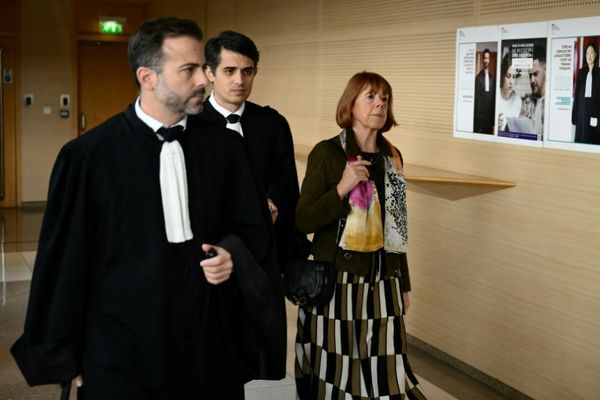An Anglican priest in Bristol has backed the Church of England's plan to reconsider God's gender - saying it makes sense "theologically". Historically, He and Him have been used as pronouns by the church, with the Lord's Prayer beginning 'Our Father'. But this spring, a new project will explore making God "non-gendered" after calls for "more inclusive language", reports say.
The Very Reverend Dr Mandy Ford, the Dean of Bristol, says the move could help inclusivity - but "isn't really a change at all". She said: "Actually, God has no gender.
"Although 'He' has historically become very familiar, theologically, God cannot be understood as having gender. It may seem to people who perhaps only really know how we refer to God in the Lord's Prayer that this is a significant change. But actually, it isn't really a change at all."
Read More: Dean of Bristol says Queen's funeral has allowed nation to mourn
The project launch was revealed after a question at General Synod, the Church of England's (CofE) national assembly. Specifics remain unclear, but it is understood priests could be allowed to stop using male pronouns in services if a change is decided upon.
The potential move has already sparked fierce debate, with conservatives arguing it breaks away from CofE doctrine. However, liberals are said to have welcomed the announcement.
Rev Ford, 62, said: "The Bible uses lots of language to refer to God: as a mother, as a shepherd, as a rock - lots of other ways. Indeed there are also prayers and hymns, and liturgy that uses a variety of language around God.
"I think the great change in recent years is that we have got much more used to using 'they/them' language. For example in academic texts, where it is quite common.
"I think it is now just very much less weird if we were to talk about God in they/them language, and there is precedent for that."
Rev Ford, who has been ordained for more than 20 years, says that she still struggles sometimes with existing language to make services feel inclusive. Despite not having campaigned for the change, she hopes it will open the church up to younger people and create a more inclusive atmosphere.
She added: "I already try quite hard not to use He/Him language in services - unless there really is no other way around it. We always refer to Jesus as a male because he was a human male, after all.
"But when talking about God, rather than talking about 'God himself', I might use the term 'God, Gods-self'. In a sense I'm wanting to remind all of us that God is not some old white man.
"God is a mystery that cannot be adequately described in human language, so all of our language about God is always going to be partial. I think part of that is that as a result of feminism, we now do not read the word 'man' and 'men' as a gender-neutral term as we arguably once did in the 16th century.
"The truth is though, in the last 100 years it does not feel neutral to refer to God as He/Him - even if the argument is that the term refers to God as part of mankind. So I think it's part of this same journey that we are on around trying to be more accurate and more careful in the language that we use."
A CofE spokesperson said of reports about the gender debate: “This is nothing new. Christians have recognised since ancient times that God is neither male nor female.
“Yet the variety of ways of addressing and describing God found in scripture has not always been reflected in our worship. There has been greater interest in exploring new language since the introduction of our current forms of service in contemporary language more than 20 years ago.
“The Liturgical Commission – the body which prepares forms of service for the Church of England – has been regularly considering these questions since 2014.
As part of its regular programme of work for the next five years, the Commission has asked another Church of England body, the Faith and Order Commission – which advises on theology – to work with it on looking at these questions.
“There are absolutely no plans to abolish or substantially revise currently authorized liturgies, and no such changes could be made without extensive legislation.”
Read More:
- Westerleigh Crematorium fire: 100 tonnes of smouldering hay being monitored
- Bristol University pronoun guide for staff includes 'catgender'
- ‘Chihuahua in handbag’ bit disabled shopper's assistance dog
- Somerset barber introduces gender neutral haircuts
- The Bristol school with gender-neutral uniform and toilets







